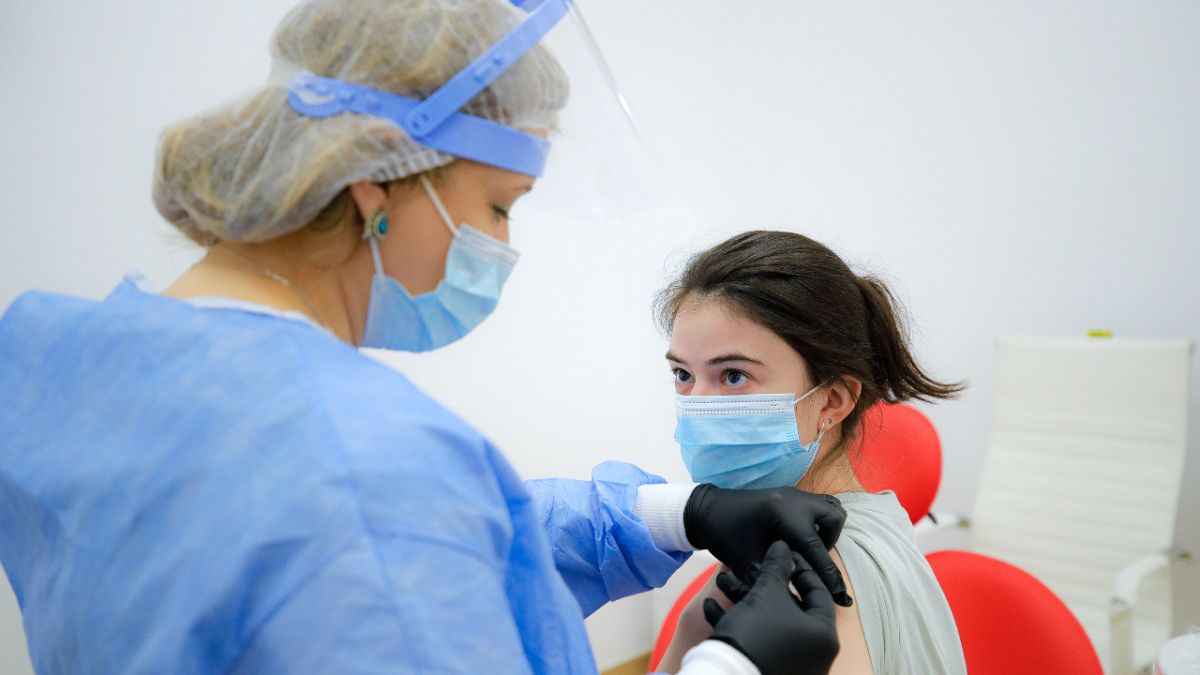"The honest truth is the best way for us to get our freedoms back... is for everybody to come forward and get the jab."
Britain's health minister has urged young people to come forward when invited to receive their COVID-19 vaccinations as jabs open up to people over the age of 25 this week.
Starting Tuesday, young people between the ages of 25 and 29 will be receiving invitations to get their first coronavirus jab, Matt Hancock said on Monday.
"From this week we will start offering vaccinations to people under-30, bringing us ever closer to the goal of offering a vaccine to all adults in the UK by the end of next month," Hancock told MPs on Monday.
People under the age of 30 represent the final cohort on the British government's vaccine priority list.
However, Hancock expressed concerns that young people could potentially have doubts over whether they need to get the jab.
Young people, he said, might think that "in their age group, they're unlikely to die of COVID", he said.
However, he said: "The honest truth is the best way for us to get our freedoms back... is for everybody to come forward and get the jab...That is the safest way out".
The health minister stressed that anyone invited to receive the vaccine should come forward, with widespread vaccination being "critical to ending the COVID-19 pandemic", according to the World Health Organization (WHO).
Already, Hancock said the UK's vaccination programme, which has so far seen more than 40 million people in the UK receive their first dose of a vaccine, has been effective in "breaking the link between infections, hospitalisations and deaths" - a link he said had been "rock solid" back in autumn.
Despite a rise in COVID cases prompted by the spread of the Delta variant, which was first identified in India, Hancock told MPs "hospitalisations have been broadly flat".
"The majority of people in hospital with COVID appear to be those who haven't had the vaccine at all," he said.
As of 3 June, Hancock said that 12,383 cases of the Delta variant had seen 464 receive emergency care, with 126 admitted to hospital.
"Of these 126 people, 83 were unvaccinated, 28 had received one dose and just three had received both doses of the vaccine," he said.
"The jabs are working, we have to keep coming forward to get them and that includes vitally that second jab which we know gives better protection against the Delta variant," the health secretary asserted.
Whether the progress of the vaccination programme will be enough to see the British government move forward with its goal of lifting all coronavirus measures on 21 June remains to be seen, however.
Hancock said it was still too soon to say whether the government would be able to move forward with its plan.
He said that a decision would be announced next Monday on 14 June.
"I know that these restrictions have not been easy," Hancock said. However, he said: "I'm confident that one day soon, freedom will return. To do this we must stay vigilant."


